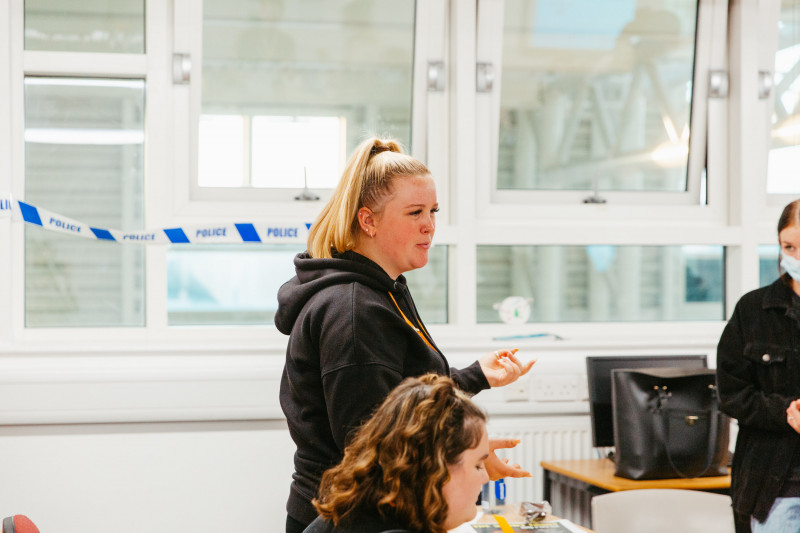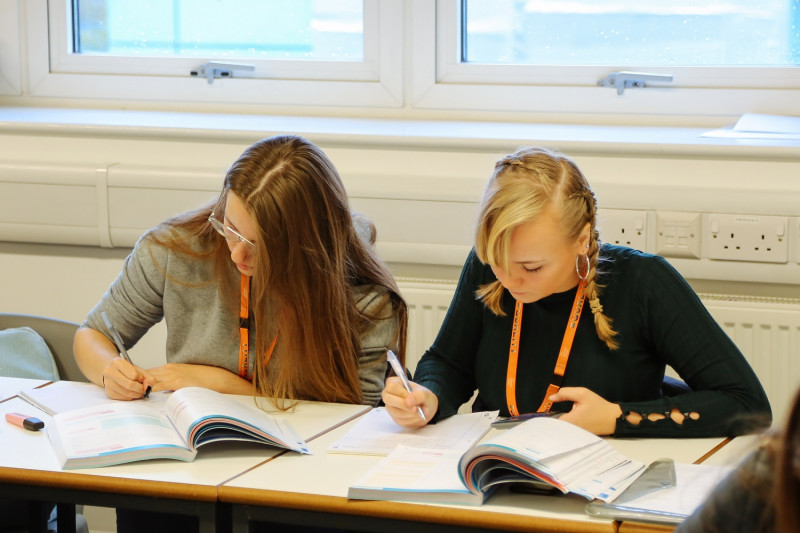About the Course
Criminology is the study of the reasons why individuals commit crimes. By understanding why a person commits a crime, we can develop ways to control crime or rehabilitate the criminal. There are many theories in criminology.
This course will offer you an exciting insight into the field of criminology. You will study crime, deviance and the criminal justice system. You will develop your understanding of the key concepts, theories and principles of criminology and their application across a range of case studies and examples.
Knowing about the different types of crime and the criminological approaches to theory will give you a sharper insight into the kind of thinking used by experts and politicians to explain crime and criminality. Public law makers are informed by theory and apply these theories to their own solutions to the problem of crime.
This course is equivalent to one A Level and will also allow learners to learn in such a way that they develop:
skills required for independent learning and development
a range of generic and transferable skills
the ability to solve problems
the skills of project based research, development and presentation
the fundamental ability to work alongside other professionals, in a professional environment
the ability to apply learning in vocational contexts
Key Units
Changing Awareness of Crime
The first mandatory unit will enable the learner to demonstrate understanding of different types of crime, influences on perceptions of crime and why some crimes are unreported.
Criminological Theories
This unit will allow learners to gain an understanding of why people commit crime, drawing on what they have learned in Unit 1.
Crime Scene to Courtroom
The third mandatory unit will provide an understanding of the criminal justice system from the moment a crime has been identified to the verdict. Learners will develop the understanding and skills needed to examine information in order to review the justice of verdicts in criminal cases.
Crime and Punishment
In the final mandatory unit learners will apply their understanding of the awareness of criminality, criminological theories and the process of bringing an accused to court in order to evaluate the effectiveness of social control to deliver criminal justice policy.
Entry Requirements
5+ GCSEs Grades 9-4 in a variety of subjects, including English Language and Maths at a minimum of Grade 4.
Assessment
There are 2 external examinations for:
Unit 2: Criminological Theories
Unit 4: Crime and Punishment
Each exam is 90-minutes in length.
There are also 2 internally assessed units:
Unit 1: Changing Awareness of Crime
Unit 3: Crime Scene to Courtroom
These are assessed through internally set assignments/coursework.
Where Does This Lead?
The purpose of this qualification is to provide learners with an introduction to criminal justice and to give a context for humanities learning. Together with other relevant qualifications, such as law, psychology and sociology, it develops the understanding to support entry to higher education courses in the humanities sector.
Most A Level students go onto university, where Criminology has become a very popular subject. Degrees that learners study include the following:
BSc Criminology
BA Criminology
BA Criminology and Criminal Justice
BSc (Hons) Criminology and Psychology
LLB (Hons) Law with Criminology
BA (Hons) Criminology and Sociology
BA (Hons) Criminology
BSc (Hons) Psychology and Sociology
BSc Criminology with Law
Alternatively, the qualification allows learners to gain the required understanding and skills to be able to consider employment within some aspects of the criminal justice system, e.g. the National Probation Service, the Courts and Tribunals Service or the National Offender Management Service.
The Sheffield College offer a variety of Higher Education courses including degree courses. This study programme can lead onto these higher level programmes.
Future Opportunities
As a Criminology graduate with critical thinking, analytical and communication skills, there are a variety of careers available both inside and outside the criminal justice sector including:
Community Development Worker
Detective
Police/ Prison/Probation Officer
Social/Youth Worker
Adult Guidance Worker
Chaplain
Charity Officer
Data Scientist
Forensic Computer Analyst
Housing Manager/Officer
Local Government Officer
Paralegal
Social Researcher
Solicitor
Victim Support Officer
Tell Me More
Educational trips and visiting speakers will support the teaching of this study programme. It is expected that students will attend any educational visits and visiting speakers as due to the nature of establishments and the availability of speakers, these may be at times outside of normal timetabled classes. There may be costs associated with educational visits and students may be asked to contribute towards transport and any entry fees for places of visits.
A Level students are expected to devote as much time outside the classroom to their studies as in lessons. Homework will be set regularly but students are expected to undertake self-directed research as well.
Students are also expected to complete work experience alongside their A Levels. This can be done in a variety of different ways including volunteering, youth work, mental health support and drug rehabilitation, victim support, police special etc.*
*Please note – some of these opportunities are age-related and may need an enhanced DBS.




